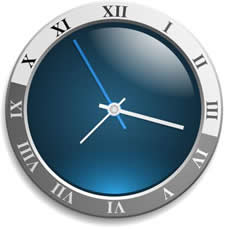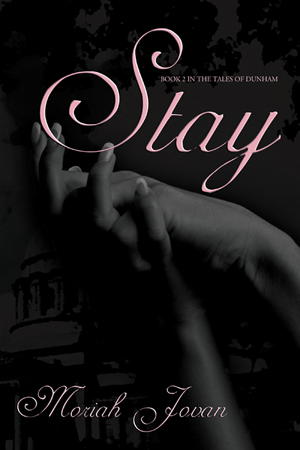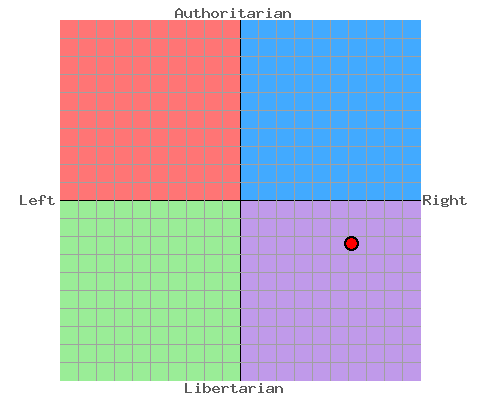… but I forgot the phone number.
Be back when I don’t feel like Teh Crud.
Never underestimate the commercial value of mental illness.

… but I forgot the phone number.
Be back when I don’t feel like Teh Crud.
Yeah, I know I have more non-Mormon readers than Mormon readers. How do I know this, you ask? I have the Sight. (Plus the not illogical assumption that I offend most Mormons.) Anyway, that post title just gave every single one of my Mormon readers a giggle. Mostly because I used it.
This blog: Why Mormon Girls Stay Single is probably a lot funnier now that I’m married, but I had to tell you about it, which is actually the whole purpose of the post. I found it via the current, ah, kerfuffle (don’t hit me, Jessica) over what is and is not a real bloggernacle blog, but my blog is not any one of those.
Thank heavens.
So finally my issue with Apple’s getting some play, which is to say, over at The Future of the Internet and How to Stop It blog.
Author Moriah Jovan had a book rejected last month on that basis (although the rejection didn’t mention the book’s more creative obscenities).
Let me be clear about one thing. My other obscenities are no more or less creative than the average steamyhawt romance novel. In my opinion. However, if the steamier novels could make the cut because of the absence of the F-bomb, then yet another level of hypocrisy will have been reached. (I’d be interested to know what, if any, romance novels get converted to apps and put in the store.)
The article talks about the difference between rejected apps that are NOT e-books because e-books do have an alternative method of distribution to iPhone. (Ahem, my book is available through the Smashwords/Stanza catalog.) Anyhoo, I’m hearing that there is absolutely NO organization to the iApp store, so maybe it doesn’t matter anyway.
Except, you know, my cover Bewbies are totally eye-catching, no?
 Today I saw the most brilliant thing I have seen in a week or 2.
Today I saw the most brilliant thing I have seen in a week or 2.
Okay, so you know how you go to the store and while you’re waiting in line to cash out, there’s gobs and gobs of utterly useless crap and empty calories surrounding you? They scream at you: Buy me! Buy me! You need me! You cannot live without me one more second!
I’m mostly inured to that now. I’m too busy trying to figure out how Nostradamus gets so much press and I don’t.
However, today I had reason to go to Office Depot. Now, you must understand. Office Depot is like a crack house for me. I go in, I don’t come out for days, high on the scent of new paper, new pens, new plastic floor pads (the ones that go under your chair). Ah, the smell of bubble wrap in the morning.
But today I only needed to return something and went straight to the counter. On my way out, however, in that space reserved for mindless crap wanting you to buy it, I saw a good ten linear feet (3 feet high) of trial-sized toiletries. You know, like at Wal-Mart. Only better. More thoroughly thought out.
I looked. Looked again (and crap, didn’t take a pic; I’ll go back). Studied what they had. Nothing useless and several brands of each type of toiletry (Crest and Colgate, for example).
You may think this is no big deal, but it IS. This is value-added at the finest. It’s not Sony “fashion earbuds” (although those were way cute); it’s not some weird executive toy I couldn’t figure out how to work; it’s not the ubiquitous calendar. It’s also not the candy/pop/bottled water section.
No, it’s TOILETRIES. People need those. People who shop at office supply stores need those because, you know, I bet lots of business travelers end up at an office supply store. And they might have had to stop at Wal-Mart or Target later to get one of those toiletry items, but they don’t have to now because Office Depot had it. HALLELUJAH! I’ll tell you, the trip from my Office Depot to my Wal-Mart (across a highway from each other) would take half an hour because of traffic, parking, and walking. That’s money saved, people. And just think if a business traveler already knows those things are there! When he’s in a strange city, he knows he can go to the nearest Office Depot and get his packing tape AND his toothpaste.
And BRANDING! I will forever now associate the Office Depot BRAND with stocking things business travelers NEED. It’s not a high-cost item. Doesn’t take up much floor space. Dollar for dollar, I’ll bet that’s got a high ROI.
Okay, so what does this have to do with e-books?
Value added.
Things you can’t get in the print version.
If you were inclined to buy my book, but you knew the e-book version had about 10 extra scenes or character vignettes or lists of resources I used or a list of the songs I listened to while I was writing it (things that are not in the print version), would you be more inclined to check it out?1
I would. Give me a favorite author in e-book (one I’m inclined to buy in hardback anyway), tell me it’s got extra stuff on it, don’t slap any stupid DRM on it, and I’ll buy the e-book for the extra stuff and the hardback for the art.
Value added.
Value added.
Value added.
______________________________
1. It doesn’t yet. Be patient. I’ll retroactively send the extra package to those e-book purchasers.
Quick linguistic review. From the Greek, homo- = same.
 On Twitter the other day, I clicked on a URL that normally wouldn’t interest me, but for some reason caught my eye. It was about the new Kraft corporate logo:
On Twitter the other day, I clicked on a URL that normally wouldn’t interest me, but for some reason caught my eye. It was about the new Kraft corporate logo:
Read the whole article, because it’s instructive, and I’ve been thinking about that off and on ever since. I don’t know why. Then I saw Sunday’s Wal-Mart insert and saw its new(ish) logo:
 Do you see a difference?
Do you see a difference?
Most of you will, I’m sure, since they’re back to back, but I, in all my ADDness, will glance and not see anything of import to differentiate the two. Thus, I will gloss over both. I’ve seen many other, similar logos, but I couldn’t tell you what companies they belonged to. I guess that’s my point.
I follow several different blogs that talk about social networking, branding, marketing, etc. because I know zero, zilch, nada about all this bullshit and I’d really rather not learn. However, it seems to me, in all my naïveté, that you would want your brand/logo to stand out, no?
All the writerly/agently/editorially blogs talk about branding one’s writing. Do we have logos or don’t we? How does one “brand” something that is, inherently, about … you? You have one product, or two, maybe sixteen, but really the product is you. If you have a following, your following buys you. If people don’t like your product, people don’t buy you. You are identifiable by your name.
But then there’s something like this:

Okay, I’m as much a sucker for matching anything and thematic continuity as the next fashion-obsessed girl, and don’t mistake me—these are gorgeous covers and put ’em together like this, they look plenty different. But put me in a bookstore without a list and I won’t remember which one I have and which one I don’t. What’s scary is that I could chalk that up to my gnat-like attention span or my ADD, except I’m not the only one with the complaint. By far.
It’s not just corporate brands or book covers. It’s cars, too.
 When I was in high school, a girl in my class had a ’72 Torino. A guy had a ’69 Nova. Another had a KITT car. I drove a ’72 or ’73 Beetle (one of those freaks of nature with the auto
When I was in high school, a girl in my class had a ’72 Torino. A guy had a ’69 Nova. Another had a KITT car. I drove a ’72 or ’73 Beetle (one of those freaks of nature with the auto-clutchstick). Occasionally. I used to be able to tell what car was what, and possibly the year.
But now?
 They all look alike. It was annoying when I didn’t have a vested interest in cars, but I went looking for a luxury car for Bishop Steel Baron (Magdalene, book 3) and I found … nothing that would differentiate a luxury car from a cheap Saturn, it was downright maddening. Are you kidding me? All this time I’ve been attributing that to the laws of aerodynamics and that’s probably the most likely explanation for it, but across the brand/corporate spectrum, from Saturn to Volvo, from economy to luxury, from SUV to SUV, the vast majority look alike.
They all look alike. It was annoying when I didn’t have a vested interest in cars, but I went looking for a luxury car for Bishop Steel Baron (Magdalene, book 3) and I found … nothing that would differentiate a luxury car from a cheap Saturn, it was downright maddening. Are you kidding me? All this time I’ve been attributing that to the laws of aerodynamics and that’s probably the most likely explanation for it, but across the brand/corporate spectrum, from Saturn to Volvo, from economy to luxury, from SUV to SUV, the vast majority look alike.
I put him in a Bugatti, in case you’re wondering.
Don’t get me started on tract housing, and that includes McMansions.
I know it’s human nature to be drawn to the familiar, but humans also like variety. I’m feeling a bit of brand oppression. The smoothing out of fonts, the smiley faces and flowers, the streamlining, the … aerodynamics.
Am I missing something? I thought branding was about differentiation. If people can’t tell you from someone else, how do they know to throw their money at you?
The 5-year-old Tax Deduction has just informed me that [insert Trendy white-bread Suburban Male Name here]’s mom and dad are always fighting.
TD1: No. At home.
Me: Is [TSMN] upset about this?
TD1: No. They don’t want to be together anymore.
Me: Oh, really? How do you know this?
TD1: [TSMN] told me.
Me: Hmm. Do YOUR mommy and daddy fight?
TD1: No. [beat] Do you?
Me: No … We discuss things.
TD1: Is that like fighting?
Me: Only if we have loud voices and yelling. Have you heard us do that?
TD1: No. And [insert Trendy white-bread Suburban Female Name here]’s mom and dad, too.
Me: [TSFN]’s too?
TD1: Yeah. They don’t want to be together, either.
Me [aside to self]: Two meanest kids in the class.
asked the 3-year-old Tax Deduction.
I blame the school system.
NOTE: This is the sixth in a series of several posts David Nygren of The Urban Elitist and I have been cross-blogging concerning the issue of authors (whether traditionally published, e-published, or self-published) actually getting paid for their work.
And it’s my final entry because after reading David’s interview with Tao Lin, I’m tired. Don’t get me wrong. Doing this series has forced me to take a good look at what I’m doing and why. Because of all the things  converging on the world at the same time, I have been forced to take a candid look at my resources and limitations with regard to A) putting my art out there to begin with and B) getting paid for it. It would seem to me that David’s list of what you have to do to get read, much less paid, can be boiled down to 1 starting point:
converging on the world at the same time, I have been forced to take a candid look at my resources and limitations with regard to A) putting my art out there to begin with and B) getting paid for it. It would seem to me that David’s list of what you have to do to get read, much less paid, can be boiled down to 1 starting point:
Get noticed.
Until you do, you won’t get read. Until you’re read, no one has a reason to pay you for your work, much less your writerly ephemera and dross.
This takes marketing.
This takes time. Lots of it. As Paul said over at Publishing Renaissance,
There is a time limiting factor, people expect you to pay as much attention to their work as they are paying to yours. Many people will only continue to read or comment on your bloggedy blog if you read and comment on theirs. As a result a kind of whirlpool effect is generated, a lot of time and energy expended for very little reward.
Well, I don’t know about looking for reward, but in our heart of hearts, that is the goal, no?
I hang out and comment on a lot of industry blogs: writer, publisher, agent, etc. My name-link in the comments section is an opportunity for someone to click and find me, even though I’m simply participating and not actively selling. But I’m selling. I HATE that.  Every single day, something knocks on the door of my brain and says, “Why are you marketing to writers and industry people? Writers have their own projects and if publishers and agents wanted you, they’d’a said so when you were querying.” Every single day, I have the same epiphany:
Every single day, something knocks on the door of my brain and says, “Why are you marketing to writers and industry people? Writers have their own projects and if publishers and agents wanted you, they’d’a said so when you were querying.” Every single day, I have the same epiphany:
Go where the readers are.
Well, where the hell are they?
The minute I started to answer that question for myself, the economy tanked, and I had the startling epiphany:
They’re in the financial doghouse, like everybody else.
 Well, okay. Maybe I should just be grateful my (non-publishing) business has some income. The fact of the matter is, I invested in a leisure time industry (well, two, but that’s a different story). Right now, folks are trying to put gas in their cars to either get to work or get to job interviews. We’ve been extraordinarily lucky thus far, but those around us haven’t. If I think twice about buying a book or an e-book, it’s very likely others will, too.
Well, okay. Maybe I should just be grateful my (non-publishing) business has some income. The fact of the matter is, I invested in a leisure time industry (well, two, but that’s a different story). Right now, folks are trying to put gas in their cars to either get to work or get to job interviews. We’ve been extraordinarily lucky thus far, but those around us haven’t. If I think twice about buying a book or an e-book, it’s very likely others will, too.
I recently got active (well, semi-active) on Twitter and every time I log on, I wonder why I waited so long. I love Twitter. I love it far more than blogs and fora. It’s the methadone for my chronic IRC and Usenet withdrawal (even though I do have a really really good newsgroups provider and I hang onto mIRC like a fiend). When I tweeted my frustration with Amazon and that I feel my presence on Amazon is solely as marketing and visibility, and NOT as a revenue stream, I got this:

Along with the book marketing advice I’ve sometimes seen given: “The best marketing is to write another book, build your backlist,” this had me thinking for days.
The sad fact of my life is that I’m not a sales person and I don’t think creatively about ways to market. Tao Lin’s creativity in this knows no bounds, yet it stymies me, even when it’s laid out in detail. Every single new idea that comes to my attention seems like a chore of enormous proportions, adds to my to-do list, and takes the joy out of writing and, moreover, out of meeting people because I start to think of them as sales targets and my web stats start to become the measure of my worth.
Do I want to monetize my art? Yes, I do. I surely do want to make money doing what I love, but I have had to come to terms with the fact that I probably won’t, or at least, not anytime soon. I not only don’t enjoy marketing, I find it drains my energy for anything else in my life I could or should or want to be doing because I’m always chasing that next sale. It decreases my enjoyment in online and real-life interactions.
 As an independent, I can be in this game for as long as I want; I have no restrictions other than whatever my resources allow. I can afford the time to wait out the economy, to build the backlist, to interact with a community of people who like my books.
As an independent, I can be in this game for as long as I want; I have no restrictions other than whatever my resources allow. I can afford the time to wait out the economy, to build the backlist, to interact with a community of people who like my books.
But in the end, it only boiled down to one thing: I had to come to terms with the fact that I wasn’t going to be able to close my main business and write full-time. Not now. Maybe not ever. I had to decide that if the best I can do is make the books pay for themselves and give that many people a good read, then I have to be at peace with that.
Monetizing art? It’s a gamble at best, especially with the roadblocks in the way: market saturation, financial doom’n’gloom, loss of leisure time and money, changing technologies. But it’s not like most of us are going to stop doing the art. I’m not. David’s not. Tao Lin’s not. Zoe, Kel, Robin, J.M. Reep, and Ara aren’t. Scalzi and Wheaton and Gennita Low aren’t.
My instincts say to me, “Mojo,” they say, “a lot of people have paid money for your book and they like it and they want more. Ultimately, your loyalty should be to them, and what you owe them is another book and, if you’re feeling generous, a whole multi-media playground in this world you’ve built.”
Eventually, the economy will cycle around again (economies are cyclical, though it seems everyone forgets that), people will have money, and they will spend on leisure activities. In that time, I will have built my backlist and my world so that those people who find me and want to immerse themselves in what I’ve created will be able to pay for it.
So what have I come to? It’s simple really:
Work at the money-making business I’ve got.
Write.
Be patient.
Patient? you hoot. Yeah, in this society, whatever.
No, really.
If the only real resource you have is time, use it.
I swear I see this at least once a week on some writer’s blog or another. I am unsympathetic, but perhaps it’s because if I don’t have time to write, I don’t spend X number of minutes writing a blog post about how I don’t have time to write.
Color me curmudgeonly, but a writer writes, even if it’s only in his head, plotting, working through a problem, playing what-if, taking notes into one of those micro-recorder key chain thingies, having a scrap piece of paper and a pencil, churning your issues over with a friend or talking to yourself. I don’t care.
Writing isn’t always about sitting in front of a blank computer screen and staring at it. It’s about fostering the world you’re building and the characters you’re creating. Do you really do that in front of a computer screen, pounding out each word like it’s a chore?
I want to know something: How much of your story could you have written if you hadn’t spent that time on your blog complaining about not having any time to write? Or is writing a chore for you who can’t find time to write?
 I’m here, I promise!
I’m here, I promise!
Got some fairly big projects in the works, some related to publishing, some not, and I need to really concentrate on those. It’s a concession to my ADD, which likes the time to focus on a project, to tunnel right through it, and does not like to rotate through projects on a schedule. Honestly, I get more done that way.
Also, I’m working on my last piece in the cross-blog series David Nygren of The Urban Elitist and I are doing on monetizing fiction, then I need to concentrate on putting up some pieces for Publetariat.
I’m also working on the next book in the Dunham series, Stay, which is taking on proportions I didn’t plan for. Sometimes my imaginary friends are very persuasive, which is to say, they won’t leave me the hell alone. Stay is a little more genre romance-y than The Proviso, and a lot less heavy on the religion. I’m aiming to release it on Valentine’s Day, 2010.
Tune in tomorrow. Same Bat-channel, same Bat-time.
NOTE: This is the fifth in a series of several posts David Nygren of The Urban Elitist and I will be cross-blogging concerning the issue of authors (whether traditionally published, e-published, or self-published) actually getting paid for their work.
… a rather benignly frenetic author whose ability to think out of the box in terms of monetizing his art is, well, astounding. David had to promise Sontag in return for an interview; the barter system at work and tax-free, to boot!
I’ve had time to stew on this a bit and I have some closing thoughts (at least, for me), which I’ll blog in the coming days.
The XX Tax Deduction is 5 and in kindergarten. All day. She has an account she can use to pay for her breakfast and lunch, and we just put money in it from the web. Nifteee. Yet … she comes home every day and says, “I’m STARVED!” Oh, really? Have a snack.
Anyway, a couple of weeks ago, we found out she’s been throwing her entree in the trash wholesale. Every day. And she’s starved when she comes home from school? Well, lemme tell ya. Two parental unit heads blew up. So.
We cut her off. Now, she’d been begging to let her take lunch to school in her nifty Dora lunch box (not a real one, just a little play tin thing), but we wouldn’t let her. So we knew that sending lunch to school with her would be no punishment. But … she loves having breakfast at school and always eats all of it.
Bye bye school breakfast. That made her howl.
Bye bye school lunch, bye bye Dora tin-with-a-handle thing, bye bye hot variety.
Today is day 5 of bologna-and-cheese-on-white-with-Miracle-Whip, cheese cubes, and a bag of carrots. In a brown paper bag. Welcome to my childhood, kid, enjoy. She was forbidden to try to access her account and she was told to bring home whatever she didn’t eat. Today is also day 5 she didn’t eat her lunch and brought it home, ate it after school because she was STARVED and wasn’t allowed anything else until she did.
Except today … Her current best friend had his birthday party, for which his mother brought the class pizza for lunch. Since we had not anticipated such a thing happening, we didn’t tell her she could eat whatever was brought as a treat.
Even though she loves pizza above all other foods and it broke her heart to watch the other kids eat, she didn’t have any.
Because we told her she had to eat the lunch we gave her and nothing else.
I’m over at Publishing Renaissance today, blogging part 3 about how The Bewbies™ came into existence; in case you missed them, see part 1 and part 2, too!
April Hamilton, independent publishing crusader extraordinary, built a new site called Publetariat, which will serve as kind of a clearinghouse/gathering space for independent-like authors. As soon as I figure out the Nixonian Drupal (you know, tricky dicky), I’ll be adding my voice over there. At least, uh, that’s what I’ve been s’posin’ to do for a while now and haven’t gotten to it. I’m sure April will find a suitable punishment for me.
The O’Reilly Tools of Change for Publishing conference went on earlier this week and I followed the comments on Twitter. Fascinating! although I’m not sure any conclusions can be drawn in any direction. Frankly, it seems to me nobody really knows what the hell’s going on in publishing right now. I will just keep on keepin’ on. By the way, a free e-book rundown of the conference is available for anyone who wants one.
A lot of what I saw related to the creative monetization of fiction, which ties in perfectly with The Urban Elitist’s and my cross-blog series on the same.
The EPUB format drum continues to be beaten and pleasepleaseplease, PTB, do IT! All for one and one for all! The mp3 format of e-books. I cannot tell you how I salivate at the thought.
DRM was preached against as the Great Satan (which it is).
The guy behind the Espresso Book machine spoke. I don’t know what he said, but check out this video.
Some of my independent publishing cohorts and pals had a session. I wish I’d been there!
I’m coming to the conclusion that it will be another few years before e-books are widely read and that at that point, the value of the print book will be in POD pretty, well-made editions, hardback with gorgeous jackets and/or the ability to offer leather-bound and tooled editions or other specialty editions, where the object of the book is the art as well as the content. Until then, the market’s going to be in flux with regard to price, from free to outrageously overpriced. (I’ll blog this later; I have lots to say about this.)
In other news, the XY Tax Deduction went rooting in the cabinet and brought me a can of corn to make for him. So I did. He said, “I not hun’ry.”
 Had a very instructive morning, dear boys and girls. The power in my neighborhood went out for a while.
Had a very instructive morning, dear boys and girls. The power in my neighborhood went out for a while.
The devil! you say. No, truly, it did. No lights, no TV (poor Dude and Dude’s daily recordings), no stove (electric, ptooey), no dishwasher, no washing machine or dryer (not like I personally use those things), no hot water (after what’s left is gone), no Internet (gasp!), and, my personal favorite, no data because my laptop went on battery immediately, but I keep everything on my grab’n’run emergency preparedness external hard drive.
Pffft.
So what did I do? Went hunting for my eBookWise. That’s right. I’d had it charging and it was all fresh and ready to go, but what would happen after my charge ran out in 12 to 15 hours (depending on what light level I had it set on)? I would not be able to read, that’s what would happen. And I would thus be forced back to dead-tree books.
And writing long-hand on lined paper. (Er, well, I do that anyway.)
Take away from this what you will, but while I am still a pusher of electronically transmitted stories, nothing but nothing will take the place of dead-tree books.
 Neo-libertarian. That’s me, according to politicalcompass.org. Here I am on the graph, apparently a tidge left of Milton Friedman:
Neo-libertarian. That’s me, according to politicalcompass.org. Here I am on the graph, apparently a tidge left of Milton Friedman:
Yeah, that’s pretty accurate, although the questions were definitely slanted enough to make you think twice about whether you were thinking or feeling, and tilting you toward feeling.
Blogpal Zoe Winters is in a competition for an erotic short story contest. Let’s help her win, shall we?
Go here. Vote for hers. Even if you don’t read it, vote for it, ’cause it’s good and I wouldn’t tell you it was good if it wasn’t. I just wouldn’t say anything at all and here I am, pimpin’ for the girl!
Go! Go now!
Today, February 7, at 4:25 CST in Kansas City, it is 70 degrees outside. I got a sick kid (have had for about 3 days now). I got a list of things to do a gazillion miles long. Since it is my mission in life to give birth to a new race (Glow in the Dark) and the sun cackles wickedly every time I go outside in anticipation of what evil it can wreak upon my skin, I don’t go out unless I have to. I’m a hermit, I tell you, and I like it that way.
But you know what?
I’m missing something, I think. I had a visitor yesterday, like, came to the door and rang the doorbell adult human type of visitor. The real deal. To visit. With me.
I’ve forgotten how to converse with people. My face feels all out of whack. My voice doesn’t seem to work very well. I’ve begun to stutter. I space out faster. I don’t smile much. My small talk is microscopic. Once I actually manage to pry my mouth open, I talk in longer monologues than I used to. I mean, I’ve always felt more comfortable with the written word than the spoken—but lately I’ve just gotten downright terrible.
It’s been my goal in life to become that old woman on the block, you know, the one with the muumuu and the orthopedic shoes and the orthopedic stockings rolled down to her ankles and the funky straw hat, the one all the neighborhood kids whisper about (“I heard she’s a witch”). Mmmm, I dunno.
Mebbe not.
Pardon me, dearie, while I go stir my cauldron.
 … a 3-year-old Tax Deduction with a fever.
… a 3-year-old Tax Deduction with a fever.
Happiness is …
… watching him splash around in the bathtub like he didn’t have one.
Just sayin’, that’s all.
NOTE: This is the fourth in a series of several posts David Nygren of The Urban Elitist and I will be cross-blogging concerning the issue of authors (whether traditionally published, e-published, or self-published) actually getting paid for their work.
Yesterday (grimace) was David’s turn and he’s got me seriously thinking about that whole FREE thing again. I swear, the more we hash this out, the fewer solid opinions I’ve got.
More reviews! You readers are rackin’ ’em up and I appreciate every single one, believe me. Lessee, from the latest three, at Amazon:
1. LINK
Oddly enough, I see a lot of talk of it being specifically Mormon, and though I found that lent an interesting thread of morality you don’t see every day, it’s also ALL about the sex. Surely, this didn’t come from the same ideology as those fanatics who spent a fortune trying to manhandle CA politics or force feed us the Osmonds as paragons of virtue … The religious undertones didn’t even strike me as odd until I stepped away from the story and realized how much the rest of it doesn’t fit with the stereotype. I’m still not sure how to integrate the two …
[ … ] What most of us identify as “Mormon” just doesn’t really factor into the story. It’s more of an interesting little sidebar and to focus on that aspect ignores the fact that in general, it’s just a damned good story.
2. LINK
… it is one of few books I’ve read where religion and politics mingle, and it was quite a ride. Like a previous reviewer mentioned, I did have stereotypes in mind when I opened this book, and it made the characters all the more human to me, because even though I am not a fan of politics, nor a member of the Morman church, I could still relate.
Moriah Jovan has a gift with words, and a wonderful ability to make her characters so vivid. The heroes, the heroines, and everyone else that crossed their paths throughout the course of the story.
3. LINK
The quixotic mixture of murder, revenge, sex, and religion is really what caught my attention about this book in the first place, especially in the context of the Mormon religion. Wallace Stegner once wrote that “it is almost impossible to write fiction about the Mormons, for the reasons that Mormon institutions and Mormon society are so peculiar that they call for constant explanation.”
Jovan has achieved a remarkable degree of success in this regard, allowing non-Mormons fascinating glimpses in a natural manner without bombarding us with definitions and explanations. There is a refreshing honesty and lack of rationalization when it comes to questions of morality and faith in a modern world.
[ … ] The characters are strongly delineated and fascinating. They are the most vivid and striking people I’ve had the pleasure of “meeting” via the printed page in a long time. They may be a bit larger than life, so to speak, but never over the top. I don’t always agree with them or like them, but I will always remember them.
Bold is mine. ’Cause it’s my favorite part of the whole review.